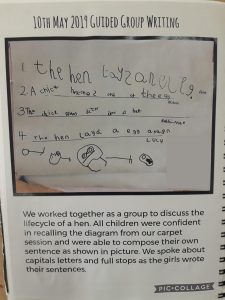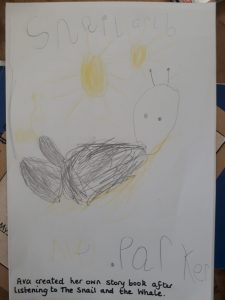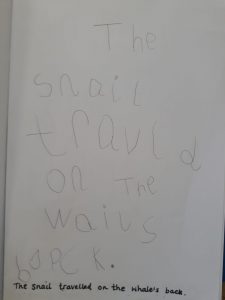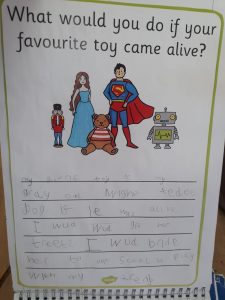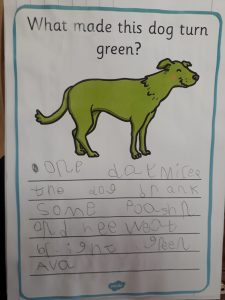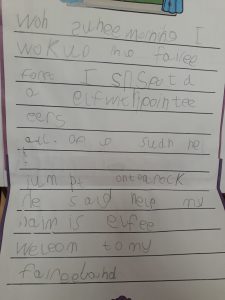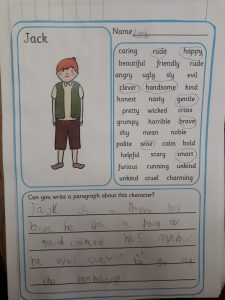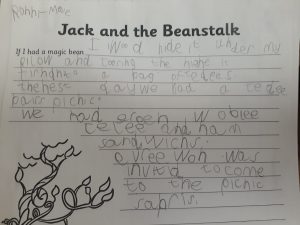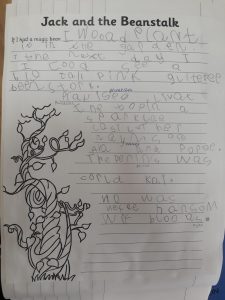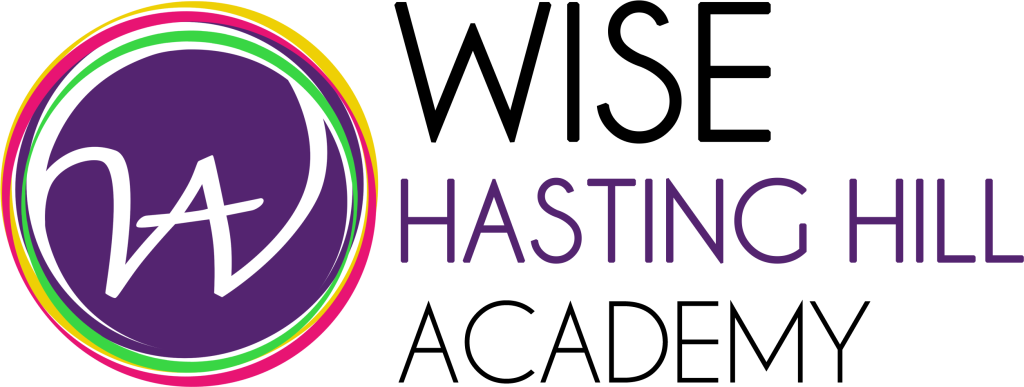English
Phonics & Reading
At Hasting Hill Academy, we believe that all children need to master phonic skills in order to become confident and fluent readers. Our pupils are taught phonics through a highly structured systematic programme called Read, Write INC.
RWI is a method of learning based upon letter sounds and phonics, and we use it to support children in their reading and writing. The children are assessed regularly and grouped according to their ability. They will work with a trained RWI teacher or teaching assistant. Once the children are phonetically aware, they can begin to decode new words and with the added teaching of common words, some of which cannot be phonetically decoded, is where the combination of sight vocabulary alongside phonic approaches, create a holistic strategy to decode and begin to build understanding.
Our Core Teaching strategies user are:
Þ Read, Write, Inc
Þ Letters & Sounds
Help and Information for Parents
Reading Progression
Whilst our children are mastering their phonic skills, they will be given reading books to take home so that the home/school partnership can begin, this is a partnership which continues throughout the school. Reading for pleasure should be an entitlement of every child, with this view in mind, we place enormous emphasis on quality texts of all genres, including picture books, science fiction, action and adventure, mystery, travel, religious, science, history, maths, anthologies, poetry, encyclopaedia, dictionaries, comics, art, cookbooks, diaries, series, trilogies, biographies, autobiographies, and fantasy to name but a few!
Whilst the decoding skills are embedding, reading lessons take place on a daily basis at Hasting Hill Academy to ensure that our children are being taught about comprehension of reading and how key strategies can deepen the understanding of texts in a fun and discursive manner.
In KS2, children begin to change their own books and use a programme called Accelerated Reader to assess their understanding, this supports the home/school partnership alongside the daily reading lessons, which continue up to year 6.
Reading Spine/Recommended Reads
According to Sir Kevan Collins, the CEO of the Education Endowment Foundation, “Young people who leave school without good literacy skills are held back at every stage of life. Their outcomes are poorer on almost every measure, from health & wellbeing, to employment & finance.”
It is facts like this which drive us, as a school, as teachers, as parents, to instil a love of reading, a passion for text and the entitlement to the opportunity to access quality text, both modern and classic so that we enable our children to have the best possible future success.
How Will We Do This?
Each year group from nursery to year 6 have a specific set of books which are age appropriate and support children’s own story writing skills, these are called the spine books or sometimes referred to as recommended reads. These texts are read for enjoyment in class and can also be read at home so that the children know these stories so well, they can retell them themselves. We are introducing ‘Reading Passports’ so that children have a record of the texts that they have read which will continue from early years throughout KS1 and KS2. The passports are a celebration of the books each child has read or has had read to them-promoting the love of reading which we know is so important to pupil development. To see which books are recommended for your child’s year group, click the link below.
Help and Information for Parents
https://researchrichpedagogies.org/research/reading-for-pleasure
https://www.penguin.co.uk/articles/children/2017/how-to-help-your-child-learn-to-read/
Spelling, Punctuation & Grammar (SPaG) and Oracy at Hasting Hill Academy
Pupils are taught specific SPaG skills, through a discrete, highly structured and systematic programme, in order to master core spelling, grammar and punctuation expectations.
Our Programme sets out to:
- Provide effective experiences, in order for our pupils to develop their spelling skills.
- Equip pupils with a range of phonological options to be able to select appropriate spelling and common spelling patterns, through a variety of teaching strategies
- Ensure that pupils have a secure grasp of grammar knowledge, and can demonstrate a secure grasp of linguistic skills both orally and in written work
- Ensure all pupils can demonstrate effective and precise oracy skills, and can confidently participate in discussions, debates, oral storytelling and public speaking.
- Pupils are given opportunities to apply these skills in a range of broader curriculum subjects
Our Core Teaching Resources Used Are:
- Read, Write, Inc
- E Silcock No-nonsense Spelling
- E Silcock No-nonsense Punctuation & Grammar
- Twinkl (Plan it- Spelling/Plan it -Grammar & Punctuation)
Help and Information for Parents
https://www.twinkl.co.uk/resource/t2-e-4682-spag-glossary-parent-and-carer-information-pack
https://www.theschoolrun.com/y6-spelling-punctuation-and-grammar-test
Oracy-Speaking & Listening
What is Oracy?
‘Oracy is the ability to express oneself fluently & grammatically in speech’.
When our pupils speak to their peers and adults, it is imperative that they have a secure grasp of spoken language which is the grammar, the word order, tense and prose. This then supports the written translation of their ideas from just an idea, to a spoken sentence, then to a written sentence.
Once children understand the word order, the grammatical structures in the correct context, it’s important that can perform (reading their work to peers, the teacher, parents and adults) this is where the importance of speaking & listening come into play. Children must develop skills so that they understand how to communicate their ideas in a group, with a partner, to an audience etc. Taught strategies, to develop such skills, are incorporated into classroom life and across all areas of the curriculum. There is an emphasis on different ways of communicating effectively as a class, a pair, a group or independently.
Our Speaking & Listening Approach aims to:
- Ensure all pupils can demonstrate effective and precise oracy skills, and can confidently participate in discussions, debates, oral storytelling and public speaking.
Writing at Hasting Hill Academy
Talk for Writing (T4W)
Hasting Hill Academy have used T4W as integral tool for the teaching of writing for several years. We have found that T4W has been extremely helpful to all of our younger children in key stage 1 as it provides opportunity for our pupils to imitate the language they need, in order to orally retell a story or recall a set of facts. Confidence in oral retelling is as important as the actual writing, the two are intertwined throughout the three stages of T4W, known as Imitation, Innovation and Independent Invention (the 3 I's)
Imitation (Stage 1)
- Children are introduced to an excerpt or story
- The retell of the story or excerpt is rehearsed and retold orally alongside a story map
- Once the story has been internalised, the structure and content can be analysed
- Toolkits can be generated (the ingredients needed)
Innovation (Stage 2)
- This is the stage where writing becomes exciting as there is opportunity to share their own ideas with their friends and teacher.
- The pattern of the text is used as a model for children to drop in their own ideas.
- This stage provides children with enough confidence to move away from the model text slightly.
- There is opportunity for children to work with response partners to check their work against the toolkit generated earlier.
- Marking and feedback supports pupils the next day in order to up-level and improve their work from the previous day.
Independant Invention (Stage 3)
- This is the final stage of the sequence and enables pupils to generate their own writing.
- Assessment from the teacher will support pupils with ‘tickable’ targets and as before, feedback and response partner work help pupils know what worked well and what they still need to work on to improve.
- Their work is published in the form of final polished piece of writing being displayed, recorded in a special writing book or shared via the school website.
Help and Information for Parents
https://www.talk4writing.co.uk/about/
https://www.greatschools.org/gk/articles/seven-ways-to-encourage-kids-writing/
Writing at Key Stage 2
At key stage 2, our pupils begin to move away from the T4W approach and begin to access a tailored literacy approach, developed with the WISE Trust for WISE schools. This approach incorporates all of the strands needed to enable our pupils to be confident and competent writers. Each unit of writing provides opportunity for our pupils to access quality, targeted texts based on their whole class reading text. This enables the children to become immersed and familiarised with well chosen texts, so much so, they are able to develop their own writing from the understanding they have gleaned from these ‘excellence model’ texts. The process within the writing cycle involves; analysis of a model text, vocabulary extension, short bursts of writing based on the chosen text with scaffolds such as teacher modelling, word banks and sentence stem support. SPaG opportunities, based on assessment for learning, are also targeted before supporting children in their planning for writing, drafting, writing and editing.
Take a look at some of our wonderful writing and stupendous story maps!
